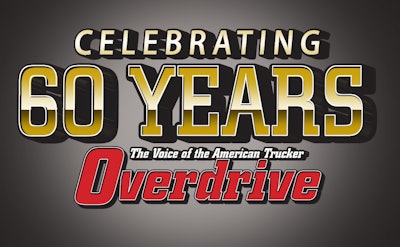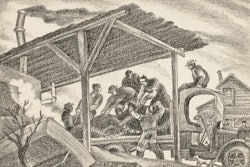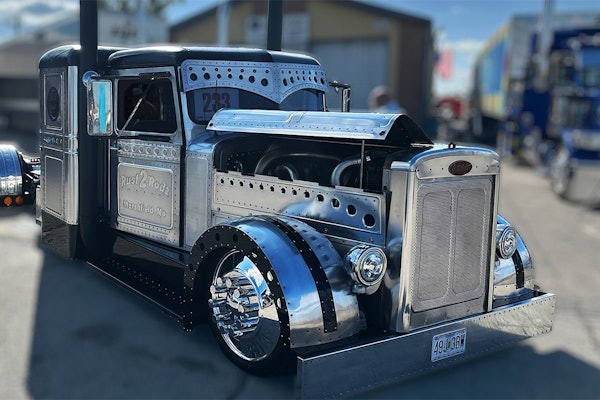By the time trucking’s popularity with the general public peaked in the late 1970s, the trucker persona as loveable bad boy was well defined in songs such as “Convoy” and in movies like “Smokey and the Bandit.” But when did this image first come into focus?
 Read more in Overdrive's weekly 60th-annversary series of lookbacks on trucking history, and that of the magazine itself, via this link.
Read more in Overdrive's weekly 60th-annversary series of lookbacks on trucking history, and that of the magazine itself, via this link.
“Six Days” remains in contemporary times one of trucking’s most popular songs -- a decade ago around Overdrive's 50th anniversary, readers voted the track as the No. 1 trucking song of all time. It was initially record by Paul Davis and released in 1961, but it was Dudley who put it on the map with his version in 1963. It reached number two on the Billboard Hot Country Songs chart and crossed over at No. 32 on its broader Hot 100 chart.
A former trucker, Dudley packed the lyrics with details from the road. The song included references to speeding, popping pills, a “Georgia overdrive,” emitting black exhaust, dodging scales and being behind on his logs.
 Among the lyrics boosting the trucker’s rebel image: “Well, my rig's a little old but that don't mean she's slow; there's a flame from my stack and that smoke's blowing black as coal.”Getty Images
Among the lyrics boosting the trucker’s rebel image: “Well, my rig's a little old but that don't mean she's slow; there's a flame from my stack and that smoke's blowing black as coal.”Getty Images

The early ‘60s, when “Six Days” hit the airwaves, was a period of transition following what historians call the “post-war consensus culture” of the 1950s, Uhlman said.
“That is just beginning to wobble a bit in the early 1960s as we begin to see the protests on campus, the free speech movement in ’64, and the civil rights movement has picked up steam,” he said. “As a result, there is an increasing fascination with rebellion in American culture.”
Hear more from Uhlman, an associate professor of U.S. socio-cultural history at the University of Dayton, about the song and Dudley’s career in this podcast:











